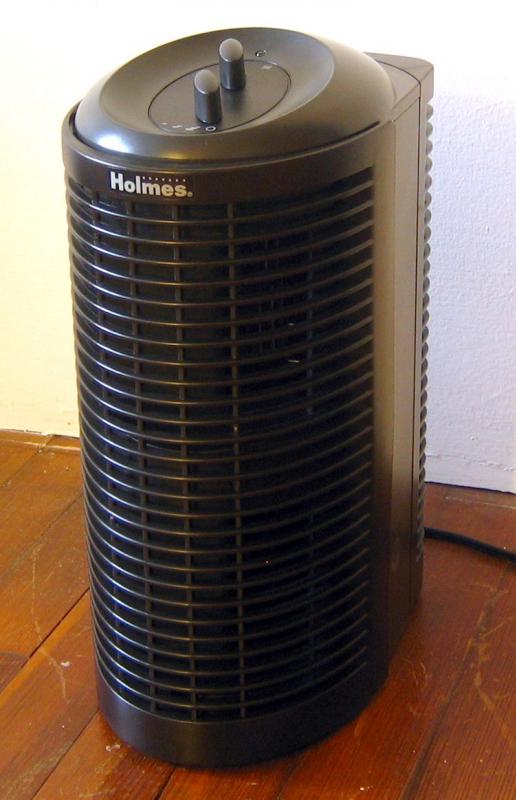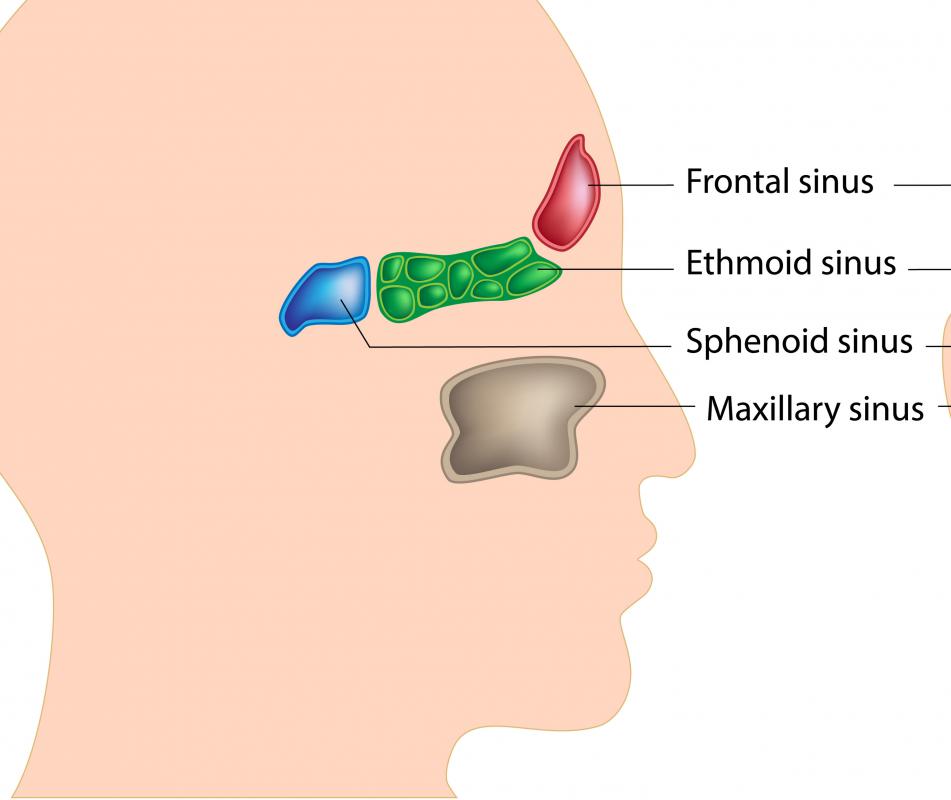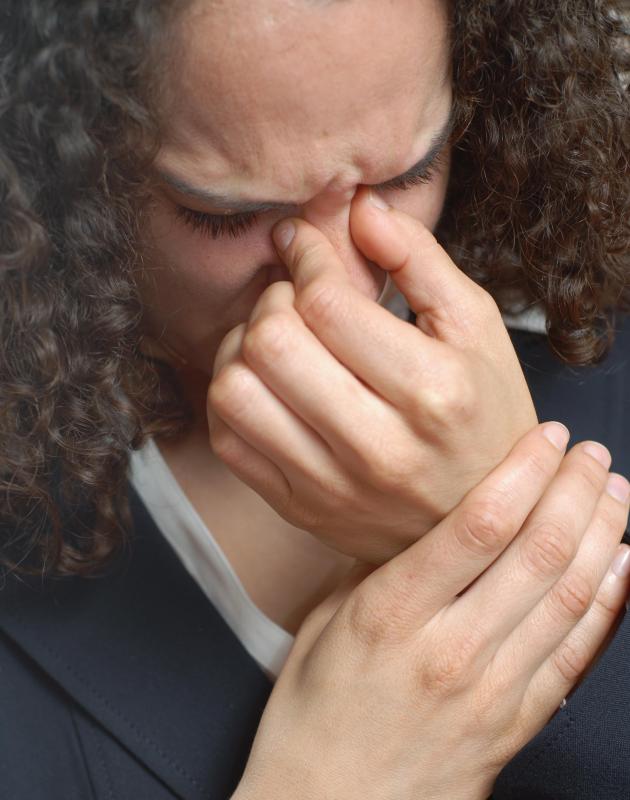At TheHealthBoard, we're committed to delivering accurate, trustworthy information. Our expert-authored content is rigorously fact-checked and sourced from credible authorities. Discover how we uphold the highest standards in providing you with reliable knowledge.
What is a Fungal Sinus Infection?
A fungal sinus infection is one of the rarest types of sinus infection. It is caused by fungus in the paranasal sinuses behind the eyes, cheeks, and nasal cavities. This type of infection usually affects people with a compromised immune system or an allergy to the causative fungus; most people are not susceptible to fungus in their environment. However, people in environments with extreme amounts of fungus, such as an advanced mold infestation, are also at risk of developing an infection.
All sinus infections are characterized by pain in the forehead, cheeks, and behind the eyes, and puffy eyes, toothache in the upper jaw, and blocked ears. Nasal congestion and discharge, chronic sore throat, sensitivity to light, and recurrent fever are other common symptoms. In addition to these symptoms, a person suffering from a fungal sinus infection may experience more frequent fever, persistent sore throat, and lethargy. If a sinus infection does not respond to antibiotics, it may be fungal in nature.

If traditional medications have no effect on a sinus infection, an x-ray of the sinuses can help determine whether the infection is fungal. Aspergillus and Curvularia are two types of fungus often responsible for infections. Anti-fungal medication is used to treat them, but recurrence should also be prevented if possible. The home should be inspected for a mold infestation, as excessive fungus in the environment can cause other illnesses. Making sure bedsheets are clean and installing an indoor air purifier can also help.

Because fungal sinus infection most commonly affects those with compromised immune systems, it is important to stay healthy in order to prevent recurrence. Drink plenty of fluids and address other health issues, including excessive stress. Decongestants can also be helpful, as they allow the sinuses to drain. If used at the first sign of congestion, they can even help prevent an infection.
AS FEATURED ON:
AS FEATURED ON:


















Discussion Comments
@sunnySkys - I actually know someone who had a fungal sinus infection. It didn't take quite that long for her to get diagnosed though. After the first week of taking antibiotics, she realized they weren't working. And she discovered some mold growing in her bathroom, so she headed back to the doctor.
It sounds like you have to go through a few steps in order to get sinus fungal infection treatment. As the article said, usually people are diagnosed with this if treatment for traditional sinus infections doesn't work.
Last time I had a sinus infection, I had to take a two week course of antibiotics. So I guess if someone had a fungal sinus infection, it would take two extra weeks for them to be diagnosed, because they would have to realize the antibiotics weren't working. Then you'd have to make another doctors appointment and maybe do some testing.
Sounds frustrating.
@Pharoah - I had no idea that oral steroids would make you more susceptible to a sinusitis fungal infection, or a systemic fungal infection. I've actually taken oral steroids several times because of my asthma, but I didn't have anything like that happen to me.
@anon147032 - Glad you're starting to feel better. I've never had fungal sinus infection symptoms, but I did have a systemic fungal infection when I was much younger. In my case, I went on anti-fungal medication for two weeks, and by the end I was feeling 100% better. So hopefully you'll be much better once you're done with your medicine.
That being said, fungal infections are luckily not that common, except among people with compromised immune systems. In my case, my immune system was artificially compromised. I had been on a course of oral steroids, which lowers your immune defenses.
i had surgery about two weeks ago. I had been blocked for about two years and I decided to operate. At first my doctor thought it was nasal polyps but turned out to be fungal infection.
Am currently on treatment but its getting better. I hope my smelling can get to 100 percent soon, though.
In the cases of severe fungal sinus infections, a more serious course of treatment may be required.
If there are symptoms of a severe blockage, or if fungus can actually be seen in the nose, then surgery may be the best fungal sinus infection treatment.
However, this is pretty uncommon, and is only used as a last resort.
@EarlyForest -- If you're having those kinds of chronic sinus infections that don't respond to normal sinus infection treatment, then it may be a fungal sinus infection.
However, on the whole, the symptoms are normally pretty similar -- it just appears to be a particularly bad sinus infection.
If it becomes particularly serious, the infection can cause a loss of appetite.
I would suggest you go to an ENT the next time one crops up to see if you have a fungal infection or just severe sinusitis.
Either way, the ENT will be able to give you a better idea of what's going on, and a good treatment for it.
Do the symptoms of a fungal sinus infection differ from those of a normal sinus infection?
I have chronic sinus infections, and am starting to wonder if it could be a fungal issue.
Does anybody have any advice?
Post your comments